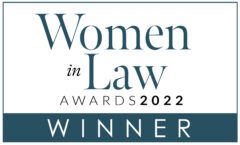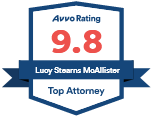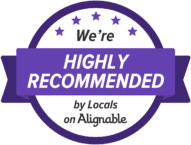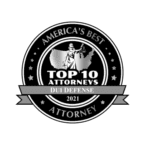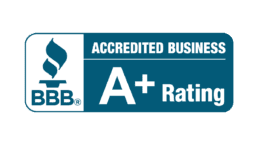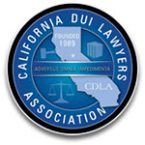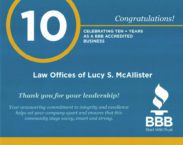Any nurse receiving a complaint related to controlled substance, alcohol and/or mental illness as well as nurses arrested for DUI, OUI or other substance abuse violations is as risk of an investigation by the California Board of Registered Nursing (BRN). Nurse complaints may come from coworkers, employers, government agencies or a concerned consumer. And if you are a California nurse and are under investigation by the BRN, you may be offered to “voluntarily” participate in the BRN’s Intervention Program – MAXIMUS.
Formerly referred to as the “BRN Diversion Program”, the BRN Intervention Program has been outsourced to a contractor named MAXIMUS. Registered nurses are referred to MAXIMUS by the BRN as a result of a complaint indicating the RN may be impaired due to substance use disorder or mental illness. MAXIMUS is also notified by the BRN any time a RN has been arrested for DUI or other alcohol related charges like domestic violence or disturbing the peace. The BRN will turn over to MAXIMUS all the information associated with the investigation and Maximus handles the intake process in the BRN Intervention Program.
Because a nurse who chooses not to enter the Intervention Program will have their complaints referred to the Enforcement Program for investigation and possible disciplinary action, it might seem like Intervention might serve to de-escalate investigation of a nurse license and discipline by the BRN. However, it is critical that nurses understand the true risks, costs and benefits of going the MAXIMUS Intervention Program route.
INABILITY TO PRACTICE: LICENSE SUSPENDED
If the nurse enrolls in the BRN intervention program, their license is immediately deactivated. While a nurse is participating in the Intervention Program, they may not practice nursing at all – even on a part-time basis for a period of 12 to 18 months, on average, but as long as 3 years, without exception. And when a nurse is allowed to return to work, there are restrictions placed on their practice including, but not limited to, non-patient care, no nights, no access to drugs, no home health, not to be the only RN on duty, and a limit on the number of hours they may work. Nurse participants must also have a work site monitor (supervisor) in place prior to returning to work who monitors progress after a nurse returns to work and prepares quarterly reports for the BRN’s Intervention Evaluation Committee (IEC).
LIFESTYLE REQUIREMENTS OF NURSE INTERVENTION PROGRAMS
The MAXIMUS program regimen is onerous. A meeting every day for 90 days with mandatory weekly nursing support groups, daily call ins to the First Lab and random urine testing (at a minimum).
These factors alone lead many nurses to exclude MAXIMUS as a reasonable financial and lifestyle choice, and by forcing nurses to give up their livelihood, implies defeat from the start (especially if they do not need ongoing treatment for substance abuse). And to technically complete the Intervention Program, a nurse identified with a substance use disorder must be able to demonstrate a change in lifestyle that supports continuing recovery and have a minimum of 24 consecutive months of clean, random, body-fluid tests.
MAXIMUS PROGRAM COST
Participation in the MAXIMUS Intervention program is costly (being a for-profit program). Drug testing (up to 3 times per week) run $83-$187 per test including collection fees with nursing support groups $10-$40/week and $25/week in administrative fees ON TOP OF drug/alcohol treatment costs.
CONFIDENTIALITY ISSUES
Finally, confidentiality is also not a “program benefit”. While participation in the BRN Intervention program is intended to be “confidential” in theory, it is clear this only refers to the aspect of keeping participation out of your BRN Accusation paperwork. In practice, individuals working in the nurse’s place of employment and the nurse’s Intervention Program monitoring body (MAXIMUS) clearly become aware of nurse’s participation in the program and any public record of criminal activity (DUI etc.) is also a matter of public record.
When a nurse is allowed to return to work, there are restrictions placed on their scope of practice. Those restrictions may include, but are not limited to, non-patient care, no nights, no access to drugs, no home health, not to be the only RN on duty, and a limit on the number of hours they may work. A nurse must also have a work site monitor in place prior to returning to work. This monitor must be someone in a supervisory capacity who will be able to assess how the nurse is doing when they return to work and prepare quarterly reports for the IEC.
ALTERNATIVES TO THE NURSE INTERVENTION PROGRAM VIA MAXIMUS
If a nurse wants to continue to work and has a reasonable explanation for their contact with alcohol or controlled substances, actively participating in an investigation with the BRN can offer a more reasonable outcome versus entering into the MAXIMUS Intervention Program. For example, in the event a nurse with a DUI is offered probation, while on probation, the nurse will actually be REQUIRED to, rather than forbidden from, working.
If you are a California nurse who has been offered participation in the MAXIMUS Intervention Program, you should immediately consult with an experienced licensing attorney such as the Law Offices of Lucy McAllister to review your specific case. A qualified lawyer can advise you about the implications of moving forward with the BRN’s investigation vs the costs to your practice associated with taking yourself out of the workforce for 1-3 years and the subsequent impact to your nursing career.
For additional information or to schedule a consultation with our law offices, please contact us today at (877) 280-9944.


